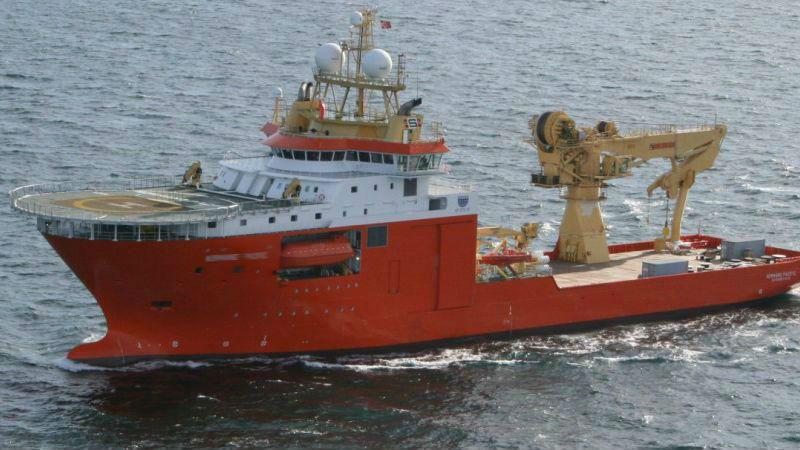AMP Supports Stricter Jones Act Interpretations

On April 18, the American Maritime Partnership submitted comments in favor of Customs and Border Protection's proposal to reverse rulings that permit the use of foreign-flag vessels for subsea construction, inspection and maintenance activities.
"Correct enforcement of U.S. coastwise laws is vitally important to national security interests and the maintenance of our domestic maritime industry,” said Tom Allegretti, chairman of the American Maritime Partnership (AMP). “The U.S. Customs order repealing erroneous coastwise rulings is a wise action that properly enforces U.S. law, promotes the future strength of the domestic fleet and maritime infrastructure, and puts American mariners first. This action will preserve the intent of the Jones Act, a cornerstone of U.S. maritime policy upon which national and economic security depend.”
In a statement, AMP said that Customs’ existing letter rulings were inconsistent with Congress' intent for the Jones Act, and it commended CBP for reviewing its interpretations. "Previous letter rulings have created an uneven playing field for U.S. companies to compete against foreign vessels, which are deploying cheap foreign labor, while not paying fair taxes," the group said.
Aaron Smith, president and CEO of the vessel operators' industry group Offshore Marine Services Association (OMSA), pointed out that strong Jones Act enforcement is consistent with President Donald Trump's support for American industry.
“The offshore service industry stands behind President Trump’s commitment to ‘Buy American, Hire American’ principles," Smith said. "The Jones Act is the quintessential 'Buy American, Hire American' law, one that puts American workers first and protects our national security. As CBP moves to make a final ruling impacting U.S. workers, we continue to encourage all federal agencies to not let foreign interests supersede American national, economic, and homeland security.”
CBP's proposed revocation has prompted an unusual split in the offshore industry, with AMP and OMSA in support and the American Petroleum Institute (API) and the International Marine Contractors Association (IMCA) in opposition. The National Ocean Industries Association (NOIA) has not taken a position, citing the “divergent views” of its membership.
According to OMSA, CBP’s proposed ruling would reverse several permissive interpretations of the phrase "equipment of the vessel," thereby putting more supplies and machinery into the category of "merchandise." Only Jones Act ships can carry merchandise between U.S. points, a category that includes rigs attached to the seafloor on the U.S. outer continental shelf.
The activities affected would include pipeline repairs; transportation of “pipeline connectors,” which can include all kinds of equipment that makes contact with a pipeline; underwater platform service operations; and the transportation of well head equipment, valves, and valve guards.
The economic impact of the change could be significant – OMSA predicts $700 million in economic gains, while API foresees $90 billion in economic losses – and it could affect up to about two dozen ships. OMSA says that the revocation would primarily affect light and medium subsea construction vessels; the group used the IHS Petrodata database to estimate that there were an average of 20 ships of the type working in the Gulf of Mexico over the past five years, and American operators have about 30 available.
